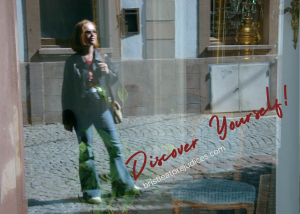More often than not, prejudice takes in several aspects at both individual and group levels, making it rather difficult to determine what causes it. Are we prejudiced? Yes, naturally. Most of us wouldn’t be very enthusiastic to reveal some of our disheartening prejudices, let aside analyze the reasons behind their inception. And sometimes we don’t even know we have them. Generally speaking, we’re getting prejudiced through past experiences and these opinions are molding as we grow, being influenced by our learning, everyday happenings, and our incessant efforts to fit in, to meet the demands of the societal group we belong to.
One of the first American psychologists to focus on the study of human personality, Gordon Allport, often referred to the fact that from the beginning of time, all societies have experienced, to a certain degree, some form of prejudice (The Nature of Prejudice, 1954). It’s been always there. According to Allport, prejudice actually emerges as a result of normal human thinking. It looks like when we, as small children, start to make sense of the world around us, we begin to sort information into mental categories, which start serving as a foundation for normal prejudgment. Allport affirms that it is practically impossible to avoid this process.
However, we can improve our ability to avoid negative prejudgment in a variety of ways. As these thoughts were too big for my head, I tried to break them down into very small pieces and that’s how the word “prejudice” came to be part of my personal branding message. Later, this formed the name of this site: bristle at prejudices. Many questions similar to “how can we bristle at prejudices?” have started to come to mind. And even more possible answers. Perhaps, I thought, we can try harder at turning “differences” into a more organic part of our life, so when our brain is only starting to form the above mentioned categories, we are better equipped to see a variety of colors instead of just black and white; maybe we learn to see that something that’s “different” is not necessarily “bad”. Small groups and societies around the world have made extensive efforts to prioritize learning that moves away from the old fashioned ways and embraces a state of acceptance. Despite all the efforts, I’m sure we can all remember that faded smirk on the face of someone we were talking to at some point; it happens when there is too much bias around the topic at hand or even around the person. In a book I totally love, Jane Eyre, I came across an affirmation that triggered this whole idea of starting a “Bristle at Prejudices” online conversation. And it’s true, almost everything circles around our prejudices. They shape us. Yet, of course, while enjoying this unique crescendo we call life, unfolding under our eyes just like a pianist’s hands dazzled by Chopin’s Nocturne, it should be us shaping whom we want to be.
Going back to Jane Eyre, this is what Charlotte Brontë wrote (back in 1840s): “Prejudices, it is well known, are most difficult to eradicate from the heart whose soil has never been loosened or fertilized by education: they grow there, firm as weeds among stones.” When I first read this book in my early twenties I didn’t stop along these lines, didn’t feel their heaviness. But years later, when I took Brontë’s book in my hands again, I suddenly paused: hmm, prejudices, I thought. And I went searching for a dictionary definition. I’ve learned that prejudice is an opinion we form about something or someone without having any evidence, an unreasonable bias. If we’d look into more definitions, we’d find more common features of prejudice, such as negative feelings, stereotyped beliefs, a tendency to discriminate against others. People are naturally driven by pride and vanity and it seems so ordinary to us to have an opinion and then turn it into a prejudice, which somehow ends up growing roots within us.
Being an incurable optimist, I do believe that knowledge, self-learning, and our willpower, can drive us away from negative prejudices. With that, I’m calling on you, my reader: bristle at prejudices! We all get hurt in one way or the other, we fall, we get up, it’s how we grow. But we can learn to avoid letting those feelings drain us and move our energy in all the wrong directions. We can choose to stop and consider them carefully, we can choose to envision ourselves as someone with a purpose, as someone with a map to follow, as someone whose energy is focused towards shaping a life story worth sharing.
